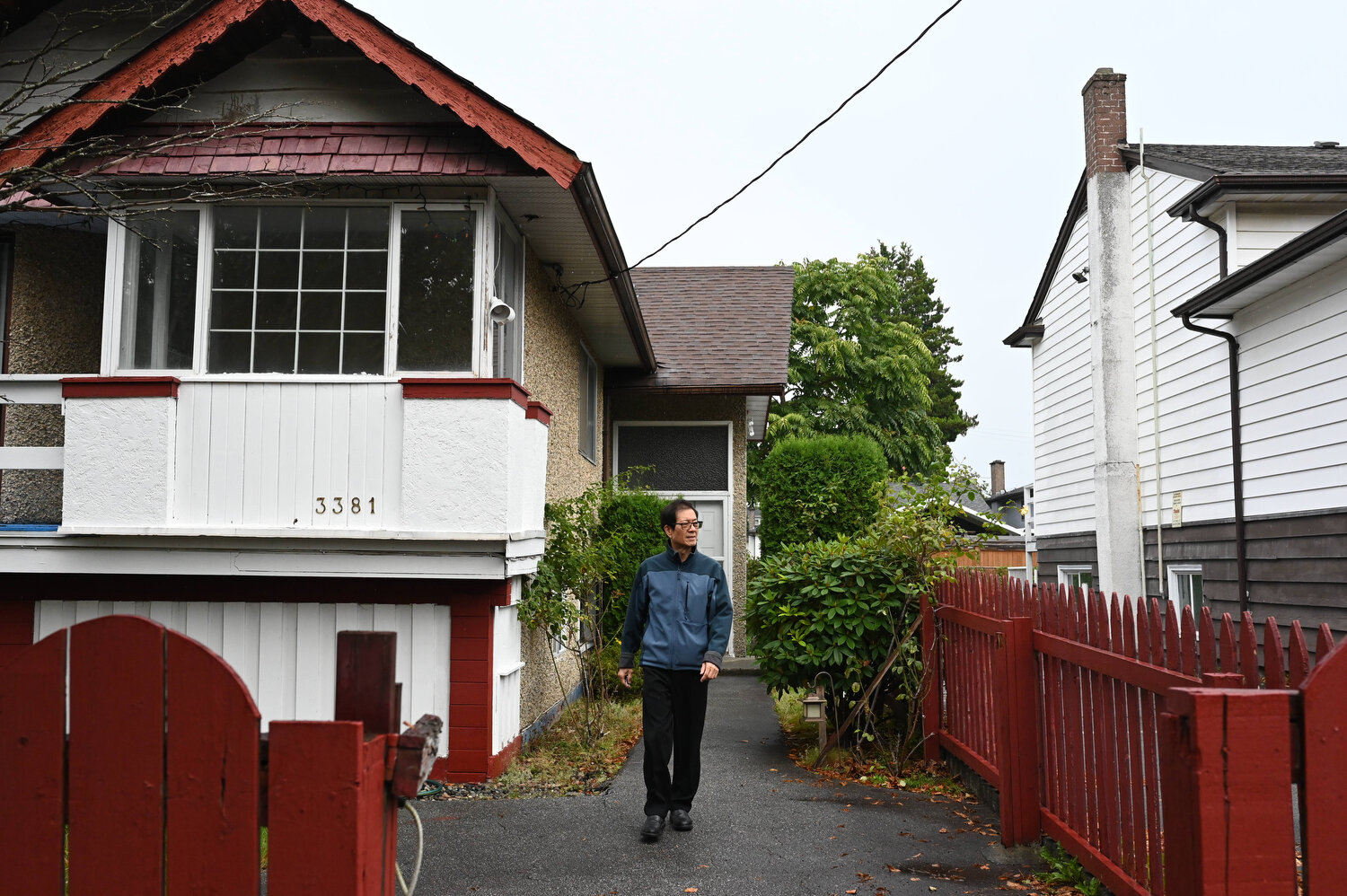
Kim Wong, 69, leaves his home every weekday and commutes 20 minutes into the heart of Chinatown, Vancouver, Canada to open the doors of his barbershop at 9 a.m.
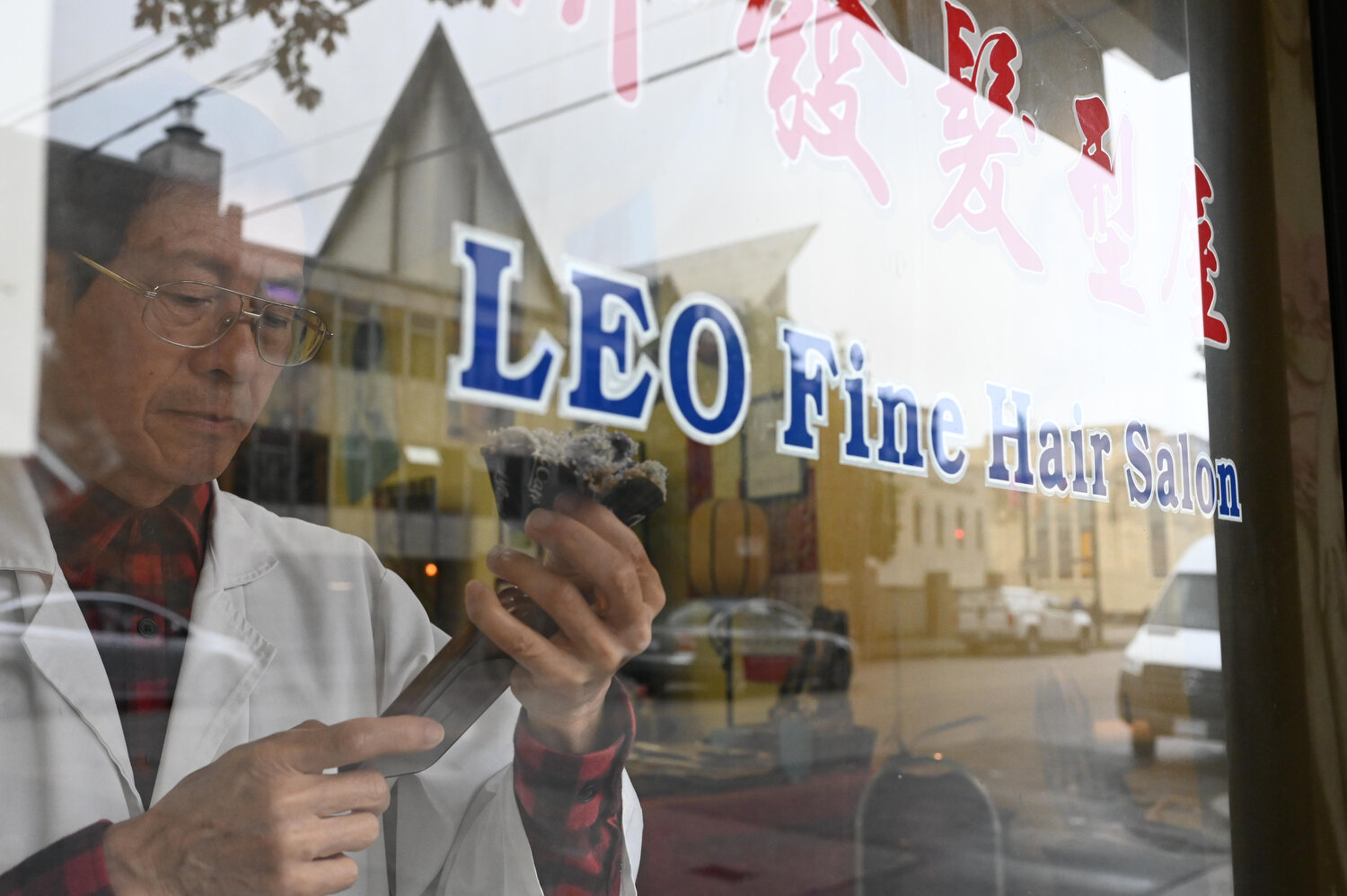
During the quieter moments of the morning, Wong will have his second breakfast, a muffin and a coffee purchased from the McDonald’s drive-thru near his home.
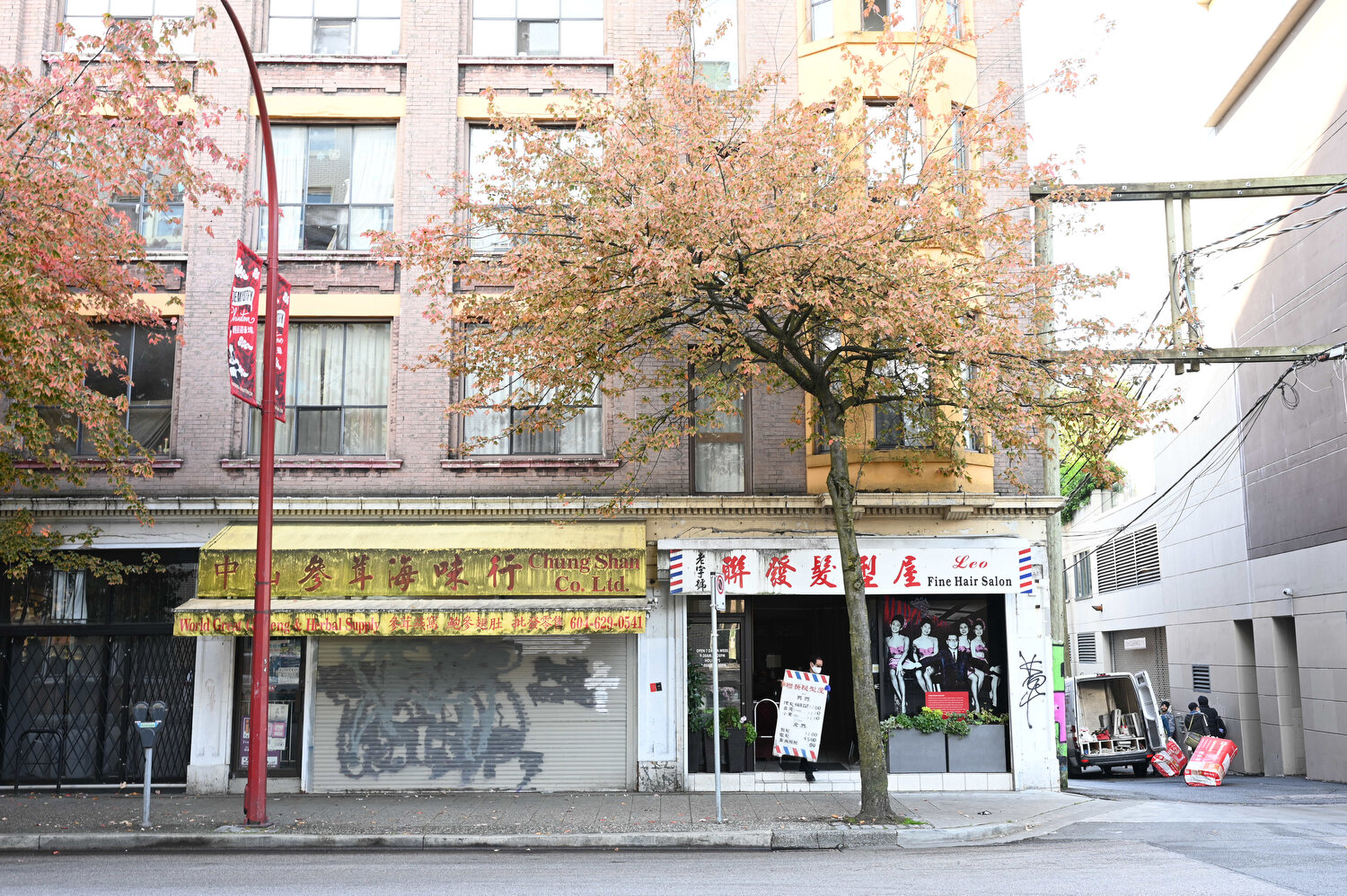
Much of Wong’s transient customers are brought in by this sandwich board, which he places curbside in front of his store. For over ten years, haircuts with Kim cost $10. The Covid-19 pandemic has led to an increase in price: “Adults $12, seniors $12, children $12.”
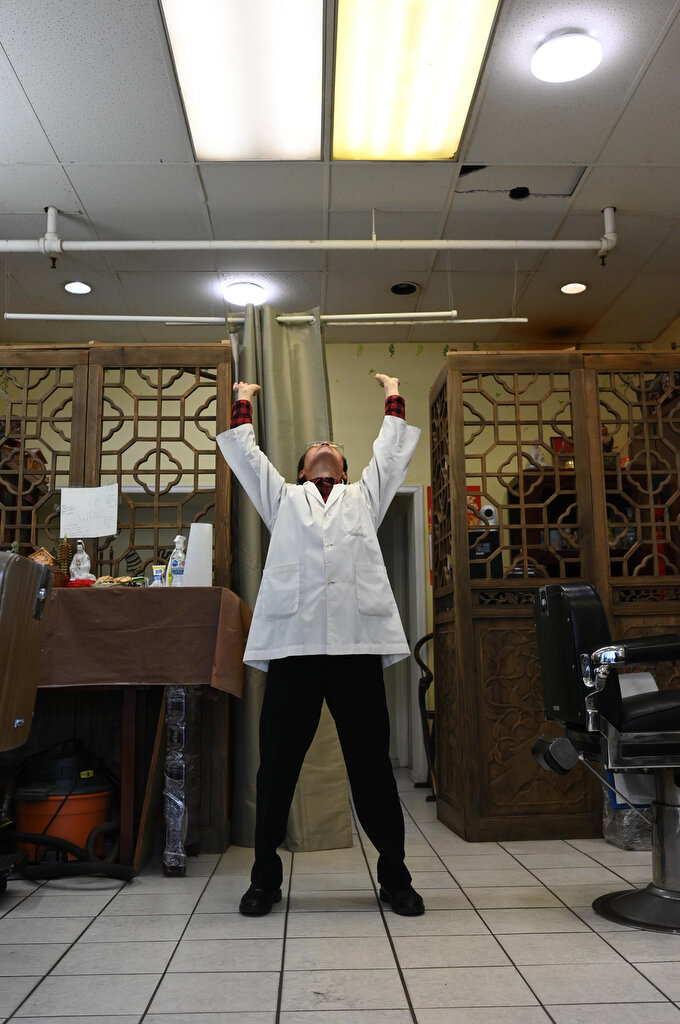
As part of his morning, Wong does 30 back stretching exercises and 100 squats. He began to incorporate this routine after asking one of his senior customers, who was 96 at the time, “What is the secret to your health?”
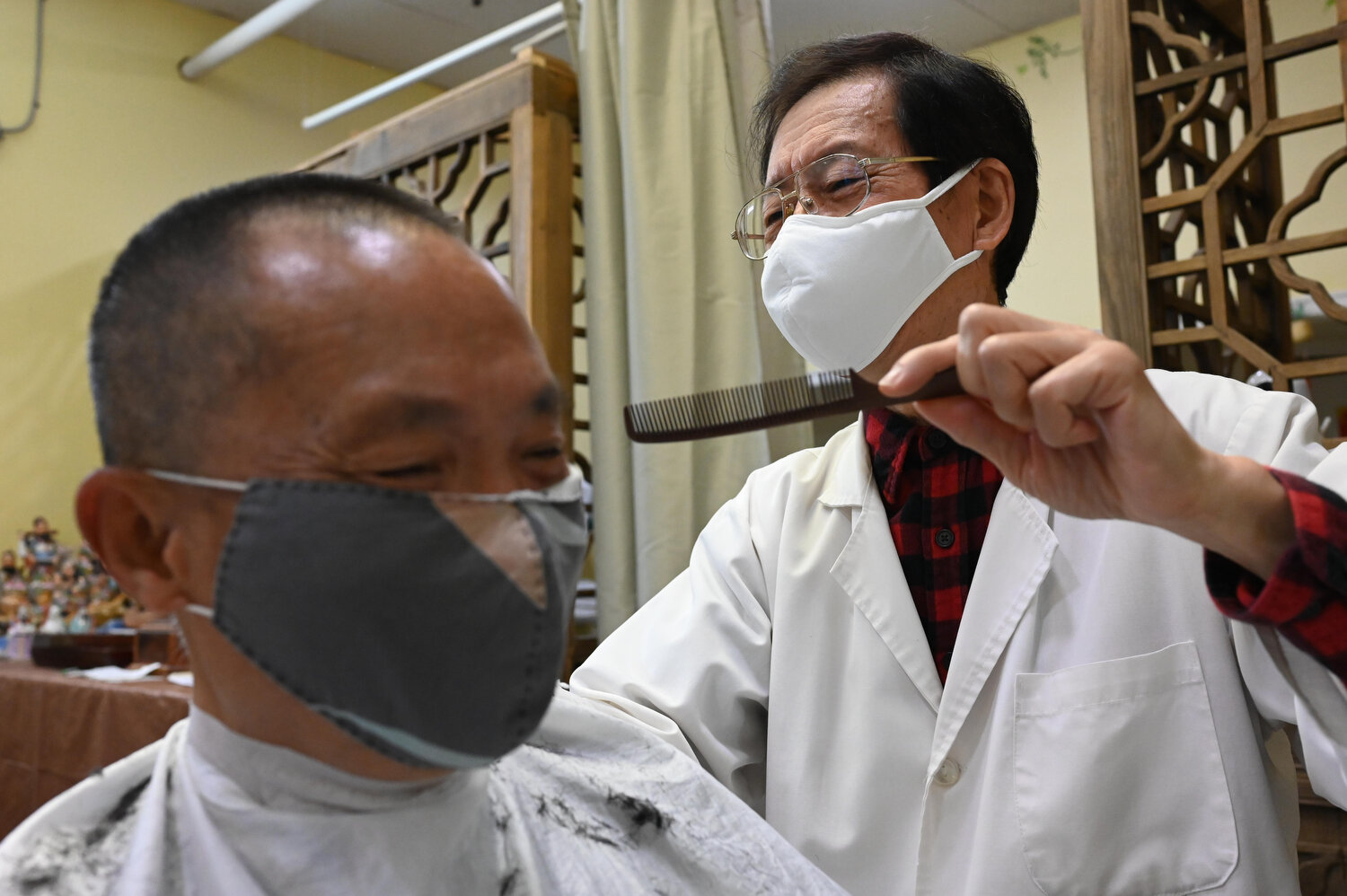
Wong shares a laugh with a regular customer, Kwok On Chu, 66. They reminisce about their youth, when they both lived in China and how times were different before Mao Zedong came into power.
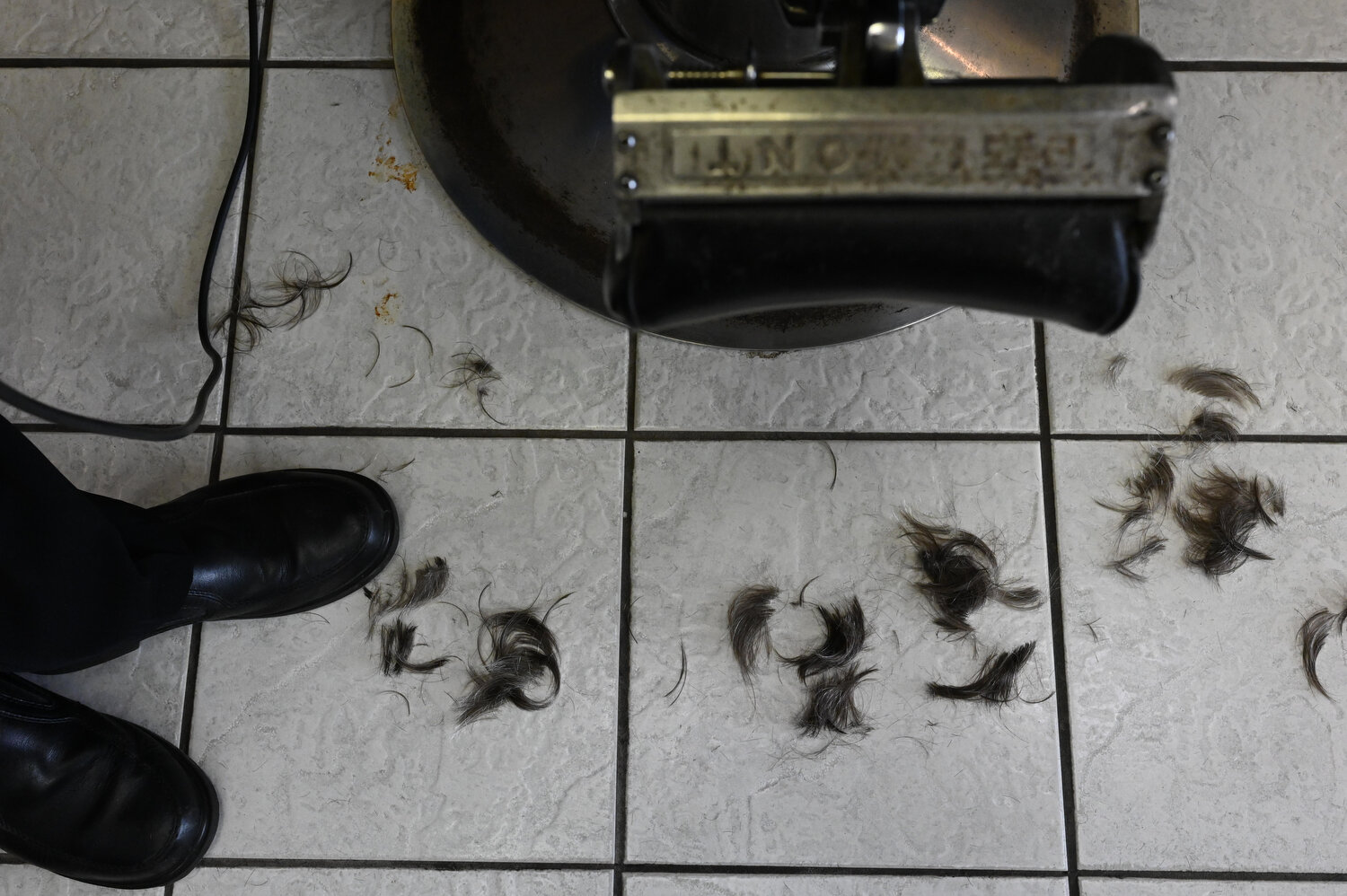
Wong has three Belmont barber chairs, which were first made in Japan in the 1930s. They were also fixtures at his father’s barbershop before it closed in 2000. These chairs, though leather- cracked and worn through in some areas, have proved their utility over the years.
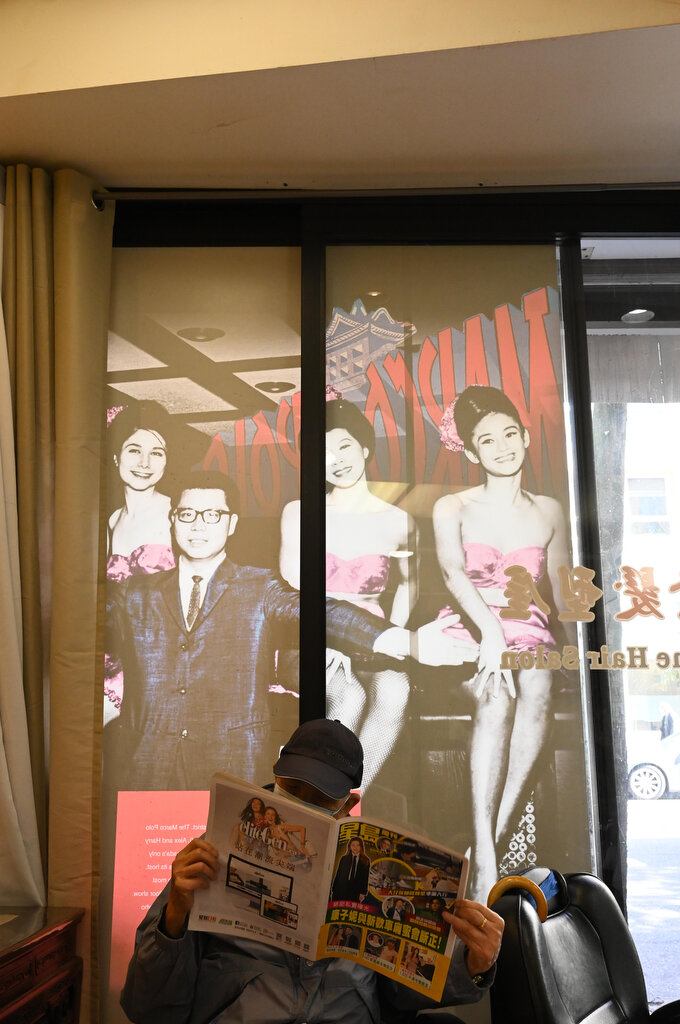
A customer slowly thumbs through an outdated issue of the ‘Sing Tao Chinese' magazine, while sitting in one of two newer barbershop chairs near the entrance of the shop. These modern chairs have been swapped out for the antique worn out ones because they are too light and tip easily.
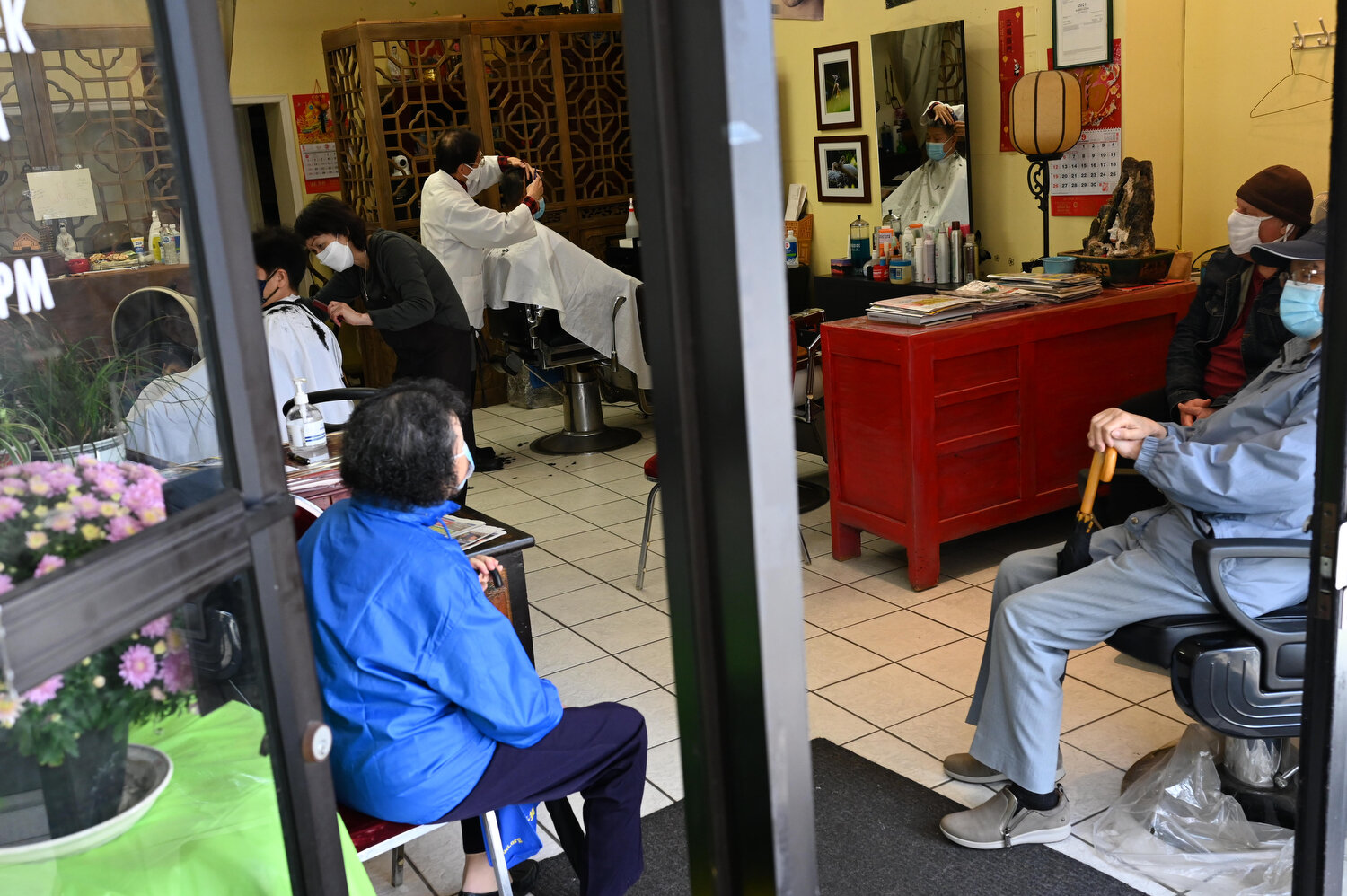
After a quiet morning, an afternoon rush occurs and all the chairs get filled with customers. Wong says, though unusual now, this is typical of their day-to-day prior to the pandemic.
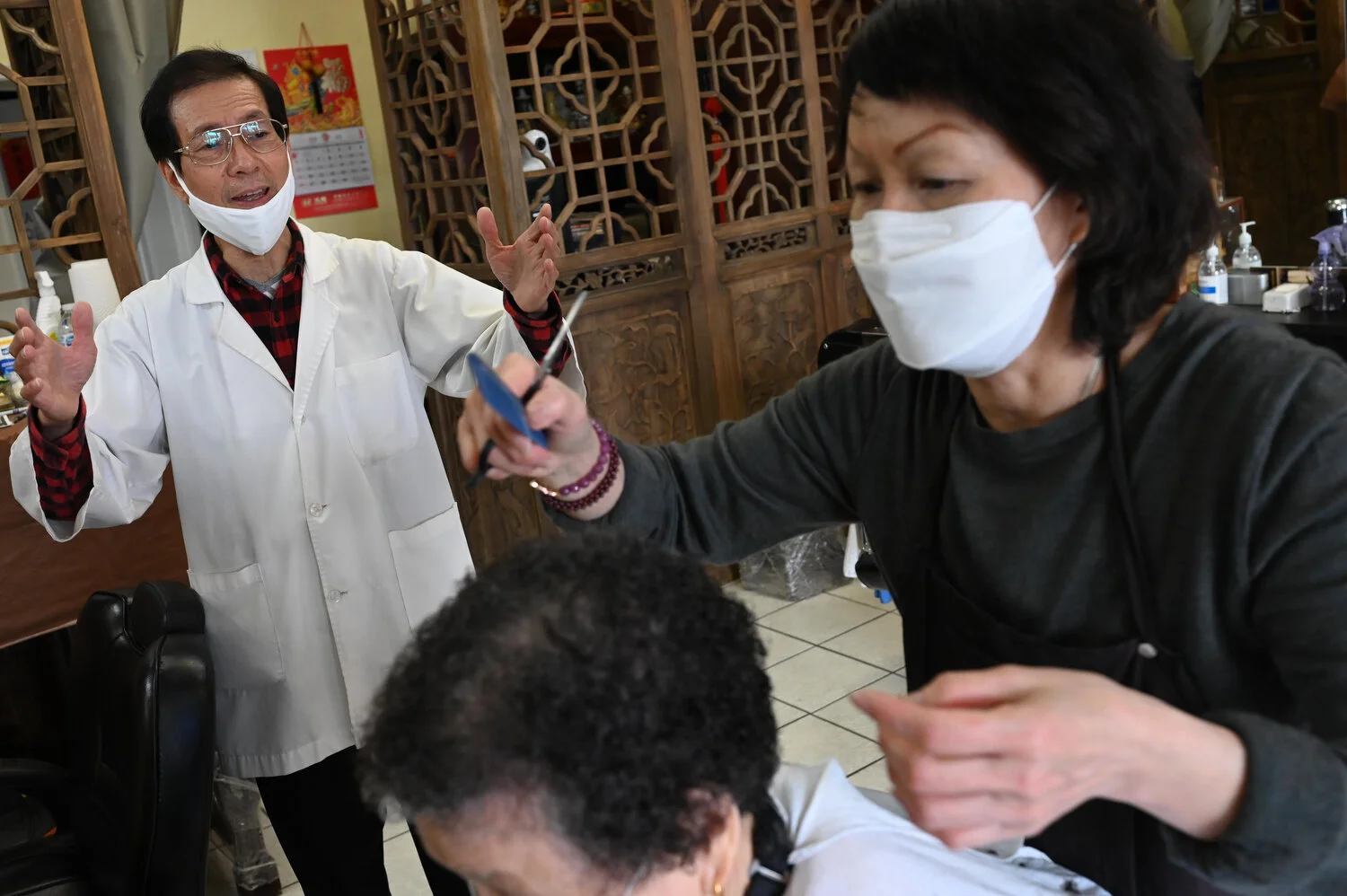
After returning from a two hour lunch date with a friend, Wong is describing to his business partner, Wendy, the long lines he encountered before being seated. Wong and Wendy decided to share this shop space together after the building that had housed their individual businesses was demolished in 2016.
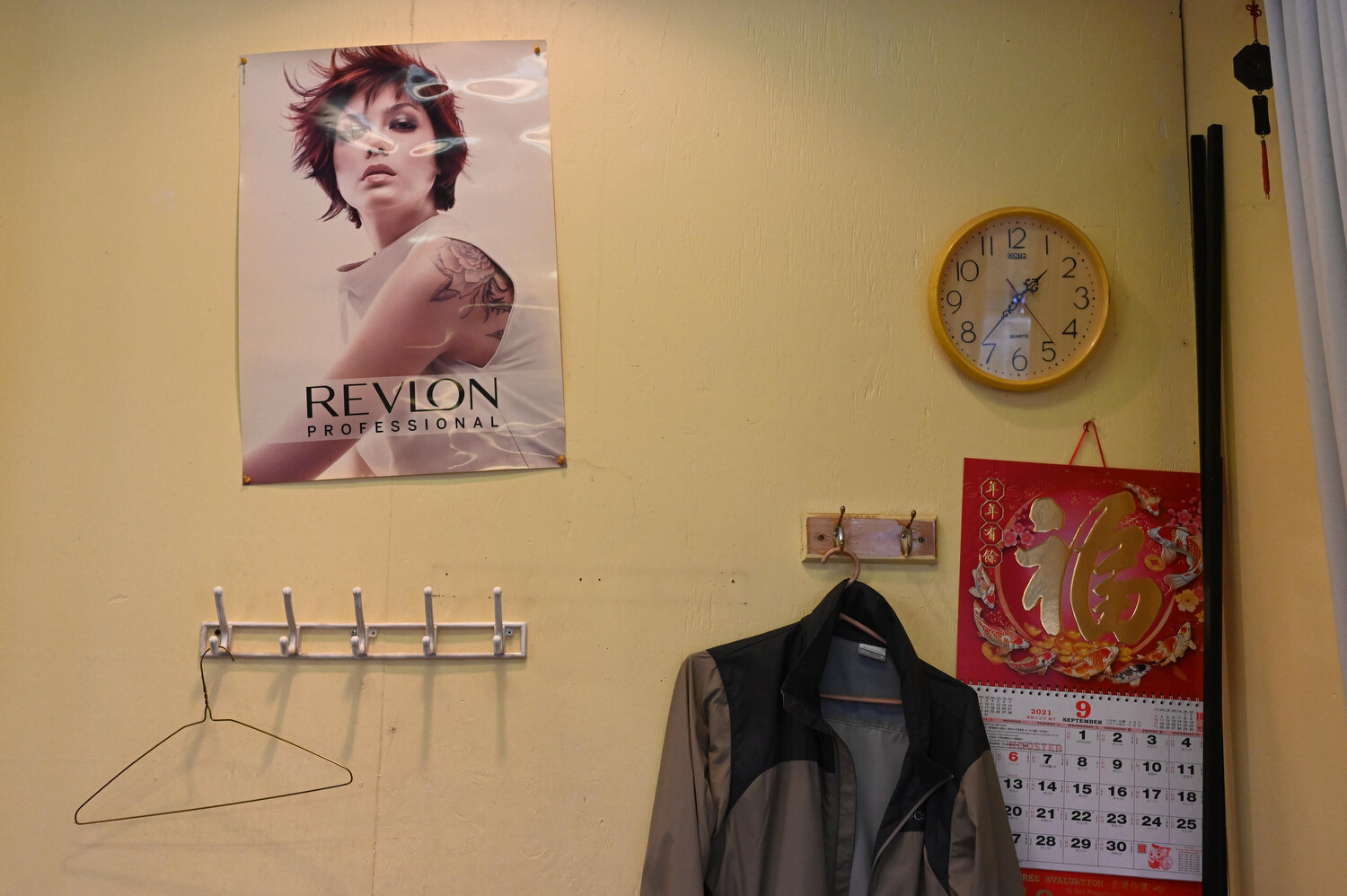
A common sight on Wong’s side of the salon, where the coat rack sits empty, and time passes slowly. “Since Covid-19 started, my senior customers don’t venture out anymore. Their children want them home to keep them safe. But when they do come, I want to be here for them, as I don’t know if that will be the last time we will see each other.”
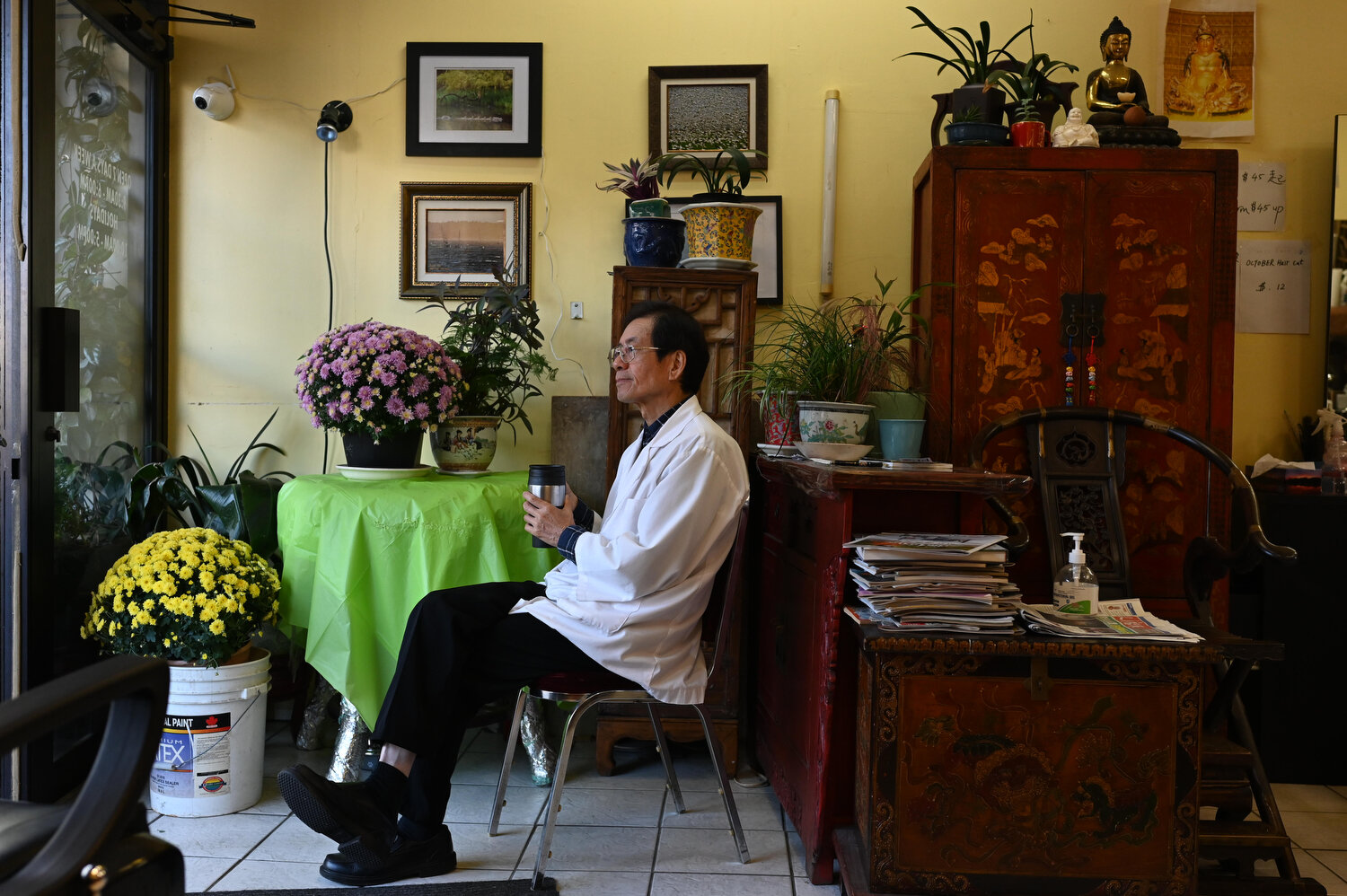
Over the years, Wong often takes his break with a warm drink and sits in this chair, looking out onto Gore Avenue. “Chinatown has changed over the years, sometimes so quickly I cannot keep up. It feels like the old cultural sights are being erased for new trendy shops, like the salon across the street that has haircuts for $80.”











Kim Wong, 69, leaves his home every weekday and commutes 20 minutes into the heart of Chinatown, Vancouver, Canada to open the doors of his barbershop at 9 a.m.
During the quieter moments of the morning, Wong will have his second breakfast, a muffin and a coffee purchased from the McDonald’s drive-thru near his home.
Much of Wong’s transient customers are brought in by this sandwich board, which he places curbside in front of his store. For over ten years, haircuts with Kim cost $10. The Covid-19 pandemic has led to an increase in price: “Adults $12, seniors $12, children $12.”
As part of his morning, Wong does 30 back stretching exercises and 100 squats. He began to incorporate this routine after asking one of his senior customers, who was 96 at the time, “What is the secret to your health?”
Wong shares a laugh with a regular customer, Kwok On Chu, 66. They reminisce about their youth, when they both lived in China and how times were different before Mao Zedong came into power.
Wong has three Belmont barber chairs, which were first made in Japan in the 1930s. They were also fixtures at his father’s barbershop before it closed in 2000. These chairs, though leather- cracked and worn through in some areas, have proved their utility over the years.
A customer slowly thumbs through an outdated issue of the ‘Sing Tao Chinese' magazine, while sitting in one of two newer barbershop chairs near the entrance of the shop. These modern chairs have been swapped out for the antique worn out ones because they are too light and tip easily.
After a quiet morning, an afternoon rush occurs and all the chairs get filled with customers. Wong says, though unusual now, this is typical of their day-to-day prior to the pandemic.
After returning from a two hour lunch date with a friend, Wong is describing to his business partner, Wendy, the long lines he encountered before being seated. Wong and Wendy decided to share this shop space together after the building that had housed their individual businesses was demolished in 2016.
A common sight on Wong’s side of the salon, where the coat rack sits empty, and time passes slowly. “Since Covid-19 started, my senior customers don’t venture out anymore. Their children want them home to keep them safe. But when they do come, I want to be here for them, as I don’t know if that will be the last time we will see each other.”
Over the years, Wong often takes his break with a warm drink and sits in this chair, looking out onto Gore Avenue. “Chinatown has changed over the years, sometimes so quickly I cannot keep up. It feels like the old cultural sights are being erased for new trendy shops, like the salon across the street that has haircuts for $80.”
